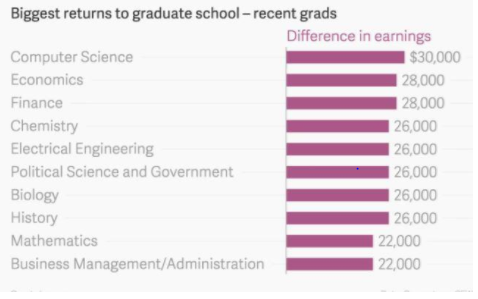Choose The Best Education loan for Abroad Studies
Funding Solution for your studies abroad
With the cost of education increasing at 15% per annum, it is no wonder then that a sizeable number of Indian students end up taking education loans when they want to go abroad for studies.
In fact, in 2016-2017, the total education loan portfolio was approximately Rs. 80,000 crores. However, most Indian students do not have a good handle on the nitty gritties of education loans. And with the presence of so many players offering education loans with various terms and conditions, the situation becomes all the more confusing and selecting the right education loan deal extremely challenging.

This article is meant for all such students who want to take an education loan but are unsure about the best-suited deal and the application process.
This article will help them to not only shortlist the best lender to take an education loan from, but it will also help them understand all the minute details which often get overlooked. So, without further ado, let us start.
Can you get an education loan without a co-applicant?
For all education loans in India, the student is the main borrower, however, his or her parent/spouse/guardian must act as the co-borrower.
What does the education loan cover?
An education loan covers the cost of education as well as various expenses related to it.
However, the exact expenses that the loan covers depend on the bank. Hence care must be taken to diligently understand all the various expenses that the loan will cover.
Where to get the loan from – Banks Vs NBFCs vs International Players
There are many players offering educational loans. Let us take up each of them one-by-one.
1. Banks

In 2001, banks started offering educational loans in India. In the current scenario, banks offer secured and unsecured loans for higher education in India as well as abroad.
A secured loan or a loan with collateral is a loan that is taken against security.
The collateral can be any tangible asset such as land/house or even intangible assets such as fixed deposits, mutual funds, etc. The bank asks the borrower
2.Credential Inflation
Today, almost everyone in the age bracket of 20-25 years has a bachelor’s degree.
Due to the over-crowding of undergraduate education loan for abroad studiesjob-seekers, students often find themselves working in underpaid jobs.
Thanks to credential inflation, the value of an undergraduate degree is rapidly declining and a master’s degree is rapidly becoming the entry-level degree in many industries.
3. Career Change


According to Washington Post, only 27% of U.S. college graduates have a job related to their degree.
You could hit a dead end very early in your career if you do not like what you are doing. Pursuing a masters’ degree in the area of your interest is the easiest way to have a quick and seamless transition into a different career.
How, you may ask?
- A graduate degree is known for its interactive learning pedagogy. The program focuses on practical learning, analytical thinking and often has live projects and internships as a part of its curriculum.
- By the end of your course, you will be fully equipped to tackle practical business challenges.
- Note that Majority of the graduate degrees do not require you to have an undergraduate major in the same field. Their curriculum is designed from a beginner’s perspective, so you can be assured that you won’t be lagging behind if you don’t have a prior background in your chosen graduate major.
4.Salary Hike
Did you know that graduate students earn approximately 20% more than their graduate counterparts?
The economic pay-off of a masters degree is pretty lucrative.
Research suggests that people with a master’s degree have draw approximately $17,000 more than the salaries of undergraduates.
Here are some statistics on the salary increase post Masters in Management:

BENEFITS OF PURSUING YOUR MASTERS ABROAD
1.Exposure to new study environment and learning pedagogy
Studying abroad will allow you to choose from globally accredited universities, known for their excellent learning pedagogy.
You will be exposed to people, study environment and teaching methods that will be radically different from your current country.
You might even gain resources and amenities that might not be available in your home country.
2.It will make you market ready for international challenges
According to an article in HuffPost, 64% of employers value international experience and think it will help you in getting hired.
Thanks to globalization, today every organization has some connection with international networks in the form of channel partners, employees and customers.
Companies are looking for culturally sensitive business leaders who understand the global economy.Check out what Oliver Watson, the MD- Michael Page, says about the ideal employee “Companies are operating over so many international boundaries, so the more languages and experience with different cultures you can bring to a company, the more you can help expand its global reach.”
An international degree will help you develop the acumen to take up such international business challenges.
3.Personal growth and self-development
Studying abroad is an intensive experience that pushes you out of your comfort zone .
By living on your own in a different country and amongst people of diverse cultures, you will develop a lot of transferrable skills like resourcefulness, objectivity and tolerance.
The study abroad experience is considered to be a catalyst in bringing out a person’s latent capabilities and potential.
4.Develop a global network
Did you know that many successful companies like Reddit and Snapchat were started in college dorm rooms?
An international experience will not only help you make life-long friends, but you also get to develop an amazing business network on a global scale.
You will be studying with people who will go on to become entrepreneurs, Fortune 500 business leaders and much more.
Don’t be surprised if you get your next job offer from your college room-mate!
Want more information on various management degrees for your study abroad program?
Check out our School Review page to find your perfect specialization!
In case you wanting to pursue an alternative route, you can take up a full-time role post your undergraduate degree.
Working straight after college is a good idea if –
1.You want to test the waters
Not sure if you see yourself working in a particular job-role or industry for the rest of your life?
Gaining work experience is a good way to know if a sector or a profile suits you for your long-term future.
2.Build your skill-set
As a fresher, you will get a chance to be a part of ground-level operations . It is a great opportunity to work on diverse projects and develop market skill sets
3.Monetary Benefits
There’s a quick savings rule called the 50/30/20 rule of thumb.
50% of your pay-check goes into necessities, 30% goes towards discretionary items and 20% towards savings.
Working straight out of college will ensure that you have a lucrative savings plan for your future.
Have you decided on your career path ? Need some more inputs? Tell us about it in the comment section below!
You can also take MiM-Essay’s Free Profile Evaluation to get a comprehensive assessment of your chances at a top Masters in Management schools. After your assessment, you’ll understand which schools to target, which qualities to highlight in your essays to maximize your chances and much more.